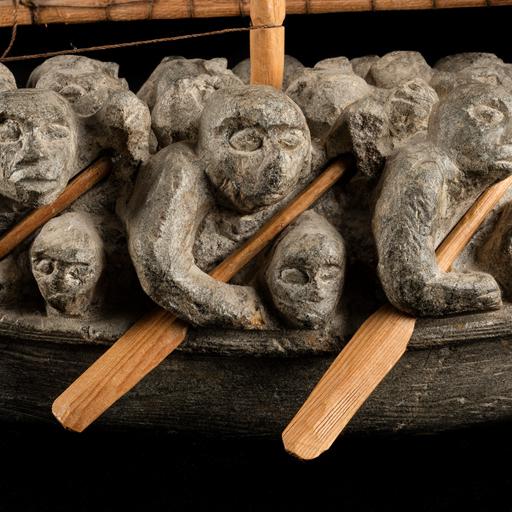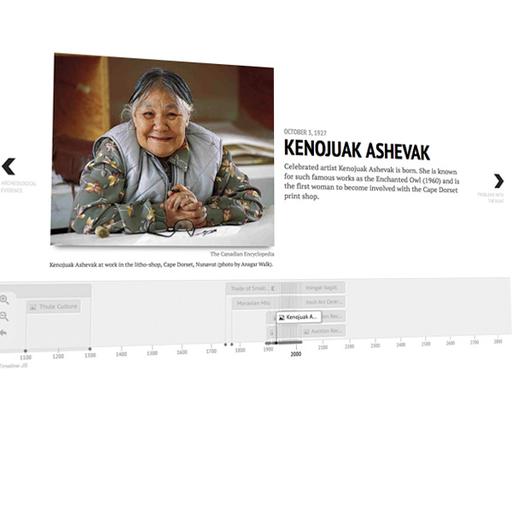Abenaki filmmaker Alanis Obomsawin awarded prestigious U.S. arts medal
CBC News | April 9, 2023
Categories: news
1st female filmmaker to win the Edward MacDowell Medal
Candace Maracle · CBC News · Posted: Apr 09, 2023 4:00 AM EDT | Last Updated: April 9

Alanis Obomsawin, a filmmaker for more than 50 years, is the newest recipient of the Edward MacDowell Medal.
MacDowell, an artist residency program in the U.S., first awarded the medal in 1960. It recognizes an individual artist who has made an outstanding contribution to their field. Obomsawin is the first female filmmaker to win the award.
Past recipients of the MacDowell Medal include Robert Frost (1962), Georgia O'Keeffe (1972), John Updike (1981), and Toni Morrison (2016).
Obomsawin was born in New Hampshire and grew up in Odanak, an Abenaki community east of Montreal. Since the 1970s, her work in documentary film has given Indigenous peoples a voice.
She has made 56 films, including Incident at Restigouche and Kanehsatake: 270 Years of Resistance, and at 90, continues to produce films.
"My main battle from the beginning was really to fight against the educational system, which was for so many generations, teaching the history of this country, really, against us," she said.
"I'm ... honoured, not just for me, but for all the people that work with me and that are in all those documentaries, it's also in their honour."
She said she has seen a dramatic shift in how Indigenous people are portrayed in media and the opportunities available to them since she first began working in film.
"You know, we went from the time that all the doors were closed on our people no matter what it is they wanted to do, and now it's totally the opposite. It's open," said Obomsawin.
Jesse Wente, who is board chair of the Canada Council for the Arts and a former co-executive director of the Indigenous Screen Office, will introduce Obomsawin at the July ceremony in Peterborough, N.H.
He said he remembers watching Incident at Restigouche as a child in 1984.
"I would have only been 10 years old, and that film still very much stays with me as a landmark in terms of cinema in the country, certainly Indigenous cinema," said Wente.
'A superhero'
Métis filmmaker Terril Calder animated a short film called Seeds: The Art of Alanis Obomsawin, which was projected onto the facade of the Royal Ontario Museum in Toronto to commemorate Obomsawin's Glenn Gould Prize in 2021.
"Beyond the films that she made, her life and her activism and the path that she's forged for so many other Canadian Indigenous artists sets a precedent of how to actually tell our stories from authentic points of view," said Calder.

Calder said Obomsawin reminds her to embrace love along with her activism because it's easy to let anger take over when you're focused on what needs to change.
"There's very few people in the world that harbour her tenacity for that change 24/7 and I think that's kind of what makes her a superhero," said Calder.
Darlene Naponse of Atikameksheng Anishnawbek, near Sudbury, Ont., talked about attending the Sundance Film Festival with friend and fellow filmmaker Obomsawin back in 2001.
Naponse said she felt like a "kid coming from the rez" and was thrilled to have her work screened alongside Obomsawin's Rocks at Whiskey Trench.
- 'This is why I revolt': How Alanis Obomsawin's painful childhood experiences inform her filmmaking
- New Alanis Obomsawin doc traces fight for equality in children's services inspired by Manitoba boy
She recalled how all the Indigenous filmmakers went out together after the screening and they were inspired that Obomsawin was always the last one on dance floor.
"If she's still dancing, then we're still dancing," said Naponse.
"And that's always been kind of a motto – you just got to continue dancing, to continue storytelling, to continue giving to our community."
Obomsawin is working with National Film Board of Canada to release a boxed-set collection of her films. She said the bonus features will provide more content for educators.
"I'm discovering, I'm learning all the time," said Obomsawin.
"It's just so rich. So there's no way that I'm going to stop working."


